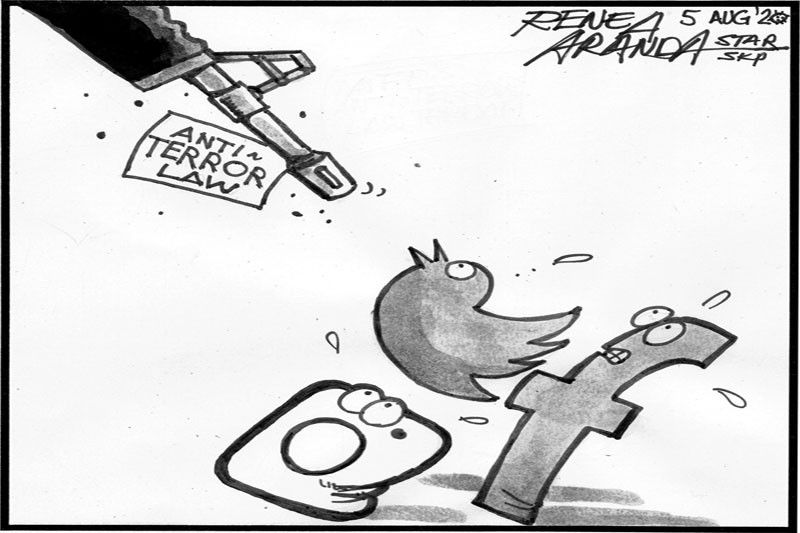EDITORIAL - Regulating social media

Officials of both Malacañang and Congress have clarified that Republic Act 11479, the Anti-Terrorism Act of 2020, is not going to be used for regulating social media. The clarifications were issued amid the statement issued by the new chief of the Armed Forces of the Philippines, Lt. Gen. Gilbert Gapay, that he wanted RA 11479 and its implementing rules and regulations to cover social media.
The rules are still being drawn up. Gapay deserves an A for candor, but the intelligence community might give him a D for opening his mouth on surveillance strategies. Around the world in this age, state security forces can be expected to monitor digital communication, whether random or specifically targeting suspected threats to national security. Even before the digital age, security forces were already intercepting communication on analog telephones.
RA 11479 is currently facing a slew of legal challenges before the Supreme Court for constitutionality amid fears that it would be used to crack down on political dissent and critical commentary. Authors of the law in both chambers of Congress as well as defense officials have insisted that there are safeguards in the law against such abuses.
Gapay stoked the fire after saying that he wanted the law to prevent radicalism of the youth through social media. It’s unclear if he was referring to any specific source of radicalism, such as Islamic extremists or communist rebels. While radicalism can pose a threat to national security, rights advocates also point to the usefulness of allowing the youth to be exposed to the free market of ideas.
One major hurdle in Gapay’s plan, apart from criticism even from lawmakers, is the difficulty of regulating social media. Monitoring, however, is easy. Netizens should not be surprised if certain statements they openly post on social media will be monitored by the government. The question is what state security forces will do with such information.
- Latest
- Trending



























